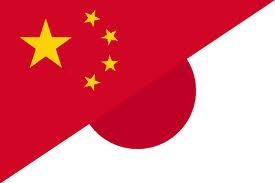The growing Chinese presence in Japan - What impact on the bilateral relationship?

Practical information
Seminar with Reinhard Drifte, Emeritus Professor at the Newcastle University, UK. Chair: Céline Pajon, Research Fellow, Ifri Center for Asian Studies.
Reinhard Drifteis Emeritus Professor at the Newcastle University, Visiting Professor at Ritsumeikan University in Kyoto and at Universite de Pau (IAE). His main topics of research are Japanese foreign policy and security issues in Northeast Asia. He is currently working on Sino-Japanese relations and territorial conflicts. He is the author of numerous books and articles, among those: Japan"s Security Relations with China since 1989: From Balancing to Bandwagoning ?, London, Routledge Curzon, 2003 ; Japan"s quest for a permanent UN Security Council Seat : A matter of pride or justice ? Basingstoke : Macmillan Press, 2000.
China has become Japan"s biggest trading partner and the number of Chinese in Japan is now higher than that of the Koreans, which had constituted the largest foreign community since 1945. Large Chinese enterprises are increasingly buying up ailing Japanese small and medium-sized companies. Chinese are becoming a major feature in Japan"s tourism industry. Chinese professors at Japanese universities can be found in increasing numbers, teaching Japanese students about China. The reactions of the Japanese to these developments range from opposition to welcome, reactions which play out against a background of increasing political and economic rivalry, territorial problems and a host of other bilateral irritants. This presentation will examine whether the growing Chinese presence in Japan will be helpful in addressing these irritants or whether it will further deteriorate the bilateral climate. The subject is of interest to Europe both as Japan"s biggest trading partner, and because of the growing Chinese presence in this region as well.
The seminar will be held in English.
Speakers
Other events

Paris Naval Conference 2026: Naval Rearmament and Operations in Contested Waters
This fourth edition of the Paris Naval Conference (CNP), bringing together high-level military, industrial, and academic speakers, will address the challenges associated with general naval rearmament and naval operations in increasingly contested environments.





